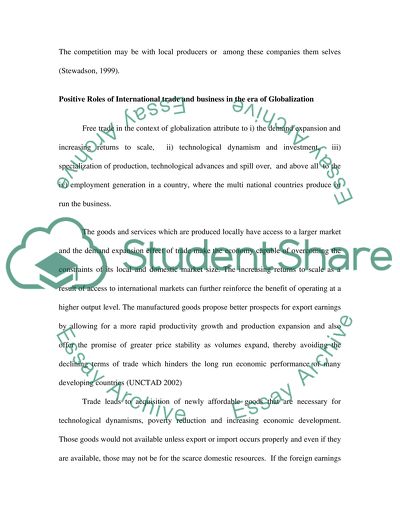Cite this document
(“Free trade, international business and globalisation continue to Essay”, n.d.)
Retrieved de https://studentshare.org/environmental-studies/1416290-free-trade-international-business-and
Retrieved de https://studentshare.org/environmental-studies/1416290-free-trade-international-business-and
(Free Trade, International Business and Globalisation Continue to Essay)
https://studentshare.org/environmental-studies/1416290-free-trade-international-business-and.
https://studentshare.org/environmental-studies/1416290-free-trade-international-business-and.
“Free Trade, International Business and Globalisation Continue to Essay”, n.d. https://studentshare.org/environmental-studies/1416290-free-trade-international-business-and.


